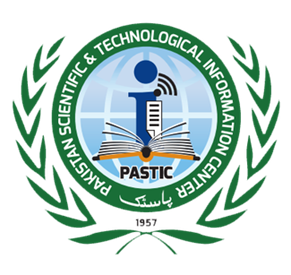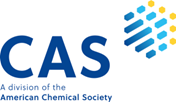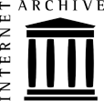Pharmacogenomics and Asia: Bridging Scientific Potential with Access Equity
Pharmacogenomics in Asia: Potential and Equity
DOI:
https://doi.org/10.69750/dmls.02.03.0111Keywords:
Pharmacogenomics, Precision Medicine, Genetic Diversity, Healthcare Equity, South AsiaAbstract
The Genomic Promise and the Asian Dilemma:
Pharmacogenomics, a cornerstone of precision medicine, is envisioned to usher in a future where drug therapy is not based on general responses but on a patient’s genetic makeup. This science allows us to identify genetic variants that affect how drugs are metabolized, how efficacious a drug is, and how safe it is to take, to provide more personalized treatments of more efficacious and less adverse drugs. This innovation has been embraced in countries like Pakistan, with developing economies and high-income countries in the Global North, but with large-scale genome projects and clinical integration, while still being on the periphery. Contained within vast genetic diversity and a large disease burden, the region’s populations are poorly represented in global pharmacogenomic databases and derive minimal benefit from their clinical applications [1].
Asia’s Genetic Wealth: A Missed Opportunity for Global Science:
One of the most genetically diverse populations in the world is Asia, in particular South Asia. However, Pakistan alone has more than 70 different ethnic groups with different genetic backgrounds that have not been well explored and utilized to date in pharmacogenomic research. Genome-wide association studies and drug response trials are focused on European ancestry populations, with the result that this understanding is skewed for pharmacologic action across a range of genetic contexts. This has led to many drugs currently on the market performing sub-optimally or having unknown side effects in South Asian populations as a result of unaccounted pharmacogenetic variability. In addition to limiting therapeutic efficacy, this poses a risk to patient safety in those populations that are already at risk and underserved [2].
Challenges Hindering Implementation in Pakistan and Neighboring Nations:
Several barriers prevent the widespread application of pharmacogenomics in Pakistan and other Asian countries. The main limitation is the lack of infrastructure. Next-generation sequencing and bioinformatics on molecular diagnostic laboratories are scarce, with most located at elite research centers or private institutions that are not generally available to the general population. The public healthcare system is overwhelmed by infectious disease outbreaks, maternal and child health crises, and rising non communicable diseases, which does not prioritize genomics based interventions. There are also large policy gaps. Currently, there are no nationally endorsed clinical guidelines on how to integrate pharmacogenomic data into prescribing practices in Pakistan. Clinical adoption is further complicated by the absence of regulatory policies regarding genomic data usage, privacy and storage [3].
A lack of trained human resources is also another serious challenge. Clinical pharmacologists, genetic counselors and molecular biologists are scarce who can interpret and apply pharmacogenomic data in patient care. However, pharmacogenomics is rarely discussed by medical professionals due to the absence of formal education on the subject in undergraduate and postgraduate curricula. Affordability poses yet another hurdle. Pharmacogenomic tests are too expensive for most patients (even when there is no cost or national insurance program reimbursement). In addition, pharmaceutical companies do not have sufficient incentives to develop or market genomic diagnostics which are tailored towards the South Asian region, as there is perceived low commercial returns leading to further delay in developing region specific tools [4].
The Necessity of Regional Integration into Global Pharmacogenomic Research:
It is essential that countries like Pakistan are actively engaged in this global pharmacogenomics movement so as to bridge this widening gap between innovation and access. Genomic infrastructure — regional and national governments need to invest in genomic infrastructure, which includes the establishment of biobanks that store diverse DNA samples and research labs that have sequencing technologies, and the promotion of public-private partnerships for innovation. Also, participation in international pharmacogenomic consortia would make sure that South Asian populations are included in drug discovery pipelines and clinical trials. Ideally, a South Asian coordinated effort for the creation of a shared genomic reference panel is possible, and several regional initiatives, such as genomic mapping projects in India and China provide valuable models on which Pakistan and neighboring countries could adapt [5].
In addition, this endeavor must be driven by academic institutions, which should encourage interdisciplinary collaboration between medical, pharmaceutical, and genomic sciences. Genomic epidemiology and pharmacogenomic research relevant to locally prevalent diseases such as diabetes, hypertension, hepatitis, tuberculosis and various cancers must receive high priority in the grants of research councils and funding agencies. By establishing regional centers of excellence in pharmacogenomics, training, research, and clinical translation can be catalyzed [6].
Toward Equitable Access and Policy Reform in Pakistan:
Scientific participation is not enough for equity in pharmacogenomics, deliberate policy reform is also required. Pharmacogenomic testing should be incorporated into the clinical management of high-burden diseases in national healthcare policies. Therefore, the essential medicines list in Pakistan should evolve to include genomic indicators for such drugs as those with narrow therapeutic indices and known adverse drug reaction profiles. At the same time, there is an urgent need for ethical governance structures to manage the flow of genomic data collection, sharing, and utilization. It is critical that we build transparent frameworks that respect data sovereignty, protect patient privacy, and provide for the benefit of the communities in which the research occurs to create public trust and long-term sustainability [7].
In overseeing genomic research as well as cross–border data sharing, national bioethics committees take on a pivotal role. The lack of such safeguards puts pharmacogenomic programs at risk of exploitation and loss of national control over valuable genetic information. Therefore, all policies and clinical guidelines must rest on the dual principles of scientific rigor and social justice [8].
Community Engagement and Genomic Literacy as Foundations of Progress:
A completely new cultural and educational shift is also needed to make it palatable and useful to the broader population than infrastructure and policy alone. A successful implementation of any personalized medicine initiative depends upon community engagement. To explain the benefits and limitations of genetic testing, public awareness campaigns, community consultations and educational materials have to be developed in local languages. Pharmacogenomics should be incorporated as a core competency in medical and allied health curricula. Additionally, international fellowships, workshops, and an online platform dedicated to capacity building in bioinformatics, genetic counseling, and clinical genomics should be emphasized [9].
There must be hubs of training and research in local universities with the support of international donors and organizations, such as WHO and UNESCO. Pharmacogenomics will only reach a clinical tool accessible to everyone through such grassroots engagement [10].
Conclusion:
The promise of pharmacogenomics is to provide individualized therapeutics, but while these policies remain outside the bounds of inclusive accountability, regional collaboration, and equitable implementation, pharmacogenomics could become a luxury reserved for countries in the developed world. Pharmacogenomics can revolutionize treatment only in Pakistan and across Asia, where populations are genetically diverse yet underserved, if scientific inclusion is translated to structural reform and ethical commitment.
Precision medicine cannot be a luxury. It should be the universal right. Diversity, representation, and access must be the global pharmacogenomic agenda of the day, and genomic medicine must benefit every community, whether it is a question of geography or income. Only with such an inclusive and justice-oriented approach can we transform the pharmacogenomics into a truly global health solution.
Downloads
References
Lee KC, Ma JD, Kuo GM. Pharmacogenomics: Bridging the gap between science and practice. Journal of the American Pharmacists Association. 2010;50(1):e1-e17.doi: https://doi.org/10.1331/JAPhA.2010.09124
Venkatakrishnan K, Gupta N, Smith PF, Lin T, Lineberry N, Ishida T, et al. Asia-Inclusive Clinical Research and Development Enabled by Translational Science and Quantitative Clinical Pharmacology: Toward a Culture That Challenges the Status Quo. Clinical Pharmacology & Therapeutics. 2023;113(2):298-309.doi: https://doi.org/10.1002/cpt.2591
Magavern EF, Gurdasani D, Ng FL, Lee SS-J. Health equality, race and pharmacogenomics. British Journal of Clinical Pharmacology. 2022;88(1):27-33.doi: https://doi.org/10.1111/bcp.14983
Corpas M, Pius M, Poburennaya M, Guio H, Dwek M, Nagaraj S, et al. Bridging genomics’ greatest challenge: The diversity gap. Cell Genomics. 2025;5(1).doi: 10.1016/j.xgen.2024.100724
Cooper DN, Angela B, Vita D, Paolo F, Federico I, Ta MLM, et al. Bridging Genomics Research Between Developed and Developing Countries: The Genomic Medicine Alliance. Personalized Medicine. 2014;11(7):615-23.doi: 10.2217/pme.14.59
Olivier C, and Williams-Jones B. Global pharmacogenomics: Where is the research taking us? Global Public Health. 2014;9(3):312-24.doi: 10.1080/17441692.2014.887137
Dandara C, Masimirembwa C, Haffani YZ, Ogutu B, Mabuka J, Aklillu E, et al. African Pharmacogenomics Consortium: Consolidating pharmacogenomics knowledge, capacity development and translation in Africa: Consolidating pharmacogenomics knowledge, capacity development and translation in Africa. AAS Open Res. 2019;2:19.doi: 10.12688/aasopenres.12965.1
Al-Worafi YM. Pharmacy Research: Comparison Between the Developing Countries. In: Al-Worafi YM, editor. Handbook of Medical and Health Sciences in Developing Countries: Education, Practice, and Research. Cham: Springer International Publishing; 2023. p. 1-21.doi: 10.1007/978-3-030-74786-2_501-1
Ausi Y, Intan BM, J. PM, and Suwantika AA. One Step Ahead in Realizing Pharmacogenetics in Low- and Middle-Income Countries: What Should We Do? Journal of Multidisciplinary Healthcare. 2024;17(null):4863-74.doi: 10.2147/JMDH.S458564
Sawant-Basak A, Urva S, Mukker JK, Haertter S, Mariano D, Parasrampuria DA, et al. Role of Clinical Pharmacology in Diversity and Inclusion in Global Drug Development: Current Practices and Industry Perspectives: White Paper. Clinical Pharmacology & Therapeutics. 2024;116(4):902-13.doi: https://doi.org/10.1002/cpt.3350






















